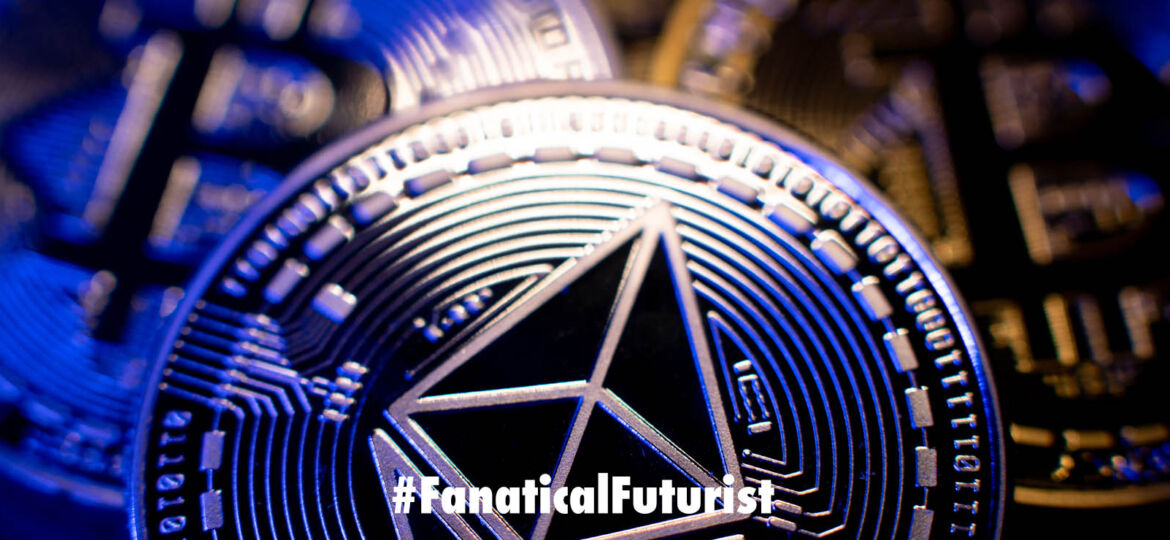
WHY THIS MATTERS IN BRIEF
Most people aren’t familiar with the token economy, but some say it could be bigger than the entire global economy is today so you should get a POV on it.
 Love the Exponential Future? Join our XPotential Community, future proof yourself with courses from XPotential University, read about exponential tech and trends, connect, watch a keynote, or browse my blog.
Love the Exponential Future? Join our XPotential Community, future proof yourself with courses from XPotential University, read about exponential tech and trends, connect, watch a keynote, or browse my blog.
Tokens, a Web 3.0 technology are an odd thing, but increasingly it’s estimated that they could create more value than today’s whole global economy, and to back some of this up we’re already seeing networks like Ethereum transact over $8 Trillion in trades. Now, a new report from Boston Consulting Group (BCG) and ADDX estimates that asset tokenization will reach $16 trillion by 2030, or 10% of global GDP. To put that figure in context, in 2020, the total assets under management for ETFs were $7 trillion (Source BIS), and total real estate investment trust (REITs) were worth $2.5 trillion in 2021 (Source Nareit).
Asset tokenization refers to using blockchain to create tokens for financial and real world assets ranging from equity, bonds and funds to art, real estate, commodities and patents.
Blockchain, Crypto, NFT’s, Web3, and the Metaverse explained, by Keynote Matthew Griffin
The report said the current figure for security tokens was $310 billion. When I asked ADDX for details about what was included, they mentioned the range of assets above and added insurance policies, pension, alternatives investments, infrastructure projects, car fleets and patents among other things.
Many current tokenization platforms are not public. For example, there are some significant blockchain and tokenization projects targeted purely at trading, such as the separate repo platforms from Broadridge and JP Morgan that transact tens of billions of trades weekly. Similarly, Baton Systems runs a number of Distributed Ledger Technology (DLT), but not token, platforms that settle tens of billions of dollars, but that is post-trade only.
BCG points to the crypto winter favoring blockchain tokenization.
“Our analysis shows asset tokenization projects could emerge strongly,” said Sumit Kumar, Managing Director and Partner, BCG South East Asia. “They are more likely to demonstrate viability in this capital-constrained environment and are therefore better positioned to attract the attention of investors, who continue to have a significant store of dry powder to deploy. This report projects that even using a conservative methodology, asset tokenization would be a $16.1 trillion business opportunity by 2030. In a best-case scenario, that estimate goes up to $68 trillion.”
Tokenization is seen as addressing the relative illiquidity of many assets today, and the causes for the limited marketability are cited as high ticket sizes, whereas tokens can be fractionalized, the inability to fractionalize some assets, such as a house, lack of data for valuation, limited access, unexpected regulatory hurdles, and complex user journeys.
ADDX (formerly iSTOX) is a Singapore regulated exchange for security tokens. It recently raised $58 million in funding, including from the Thai stock exchange SET, bringing its total backing to more than $120 million. One of its highest profile tokenizations was when it partnered with UOB bank for a $100 million bond for Singtel.

















[…] unraveled critical technology to operationalize DPPs. The tokenization market is expected to be $17 trillion by 2030, unlocking massive value through decentralized economic processes. There are several […]
[…] unraveled critical technology to operationalize DPPs. The tokenization market is expected to be $17 trillion by 2030, unlocking massive value through decentralized economic processes. There are several […]
[…] unraveled critical technology to operationalize DPPs. The tokenization market is expected to be $17 trillion by 2030, unlocking massive value through decentralized economic processes. There are several […]
[…] towards CBDCs, Kerigan pointed to a forecast from Boston Consulting Group (BCG) that by 2030 around $17 trillion worth of assets could be “tokenised” – a process where assets like stocks and bonds are […]